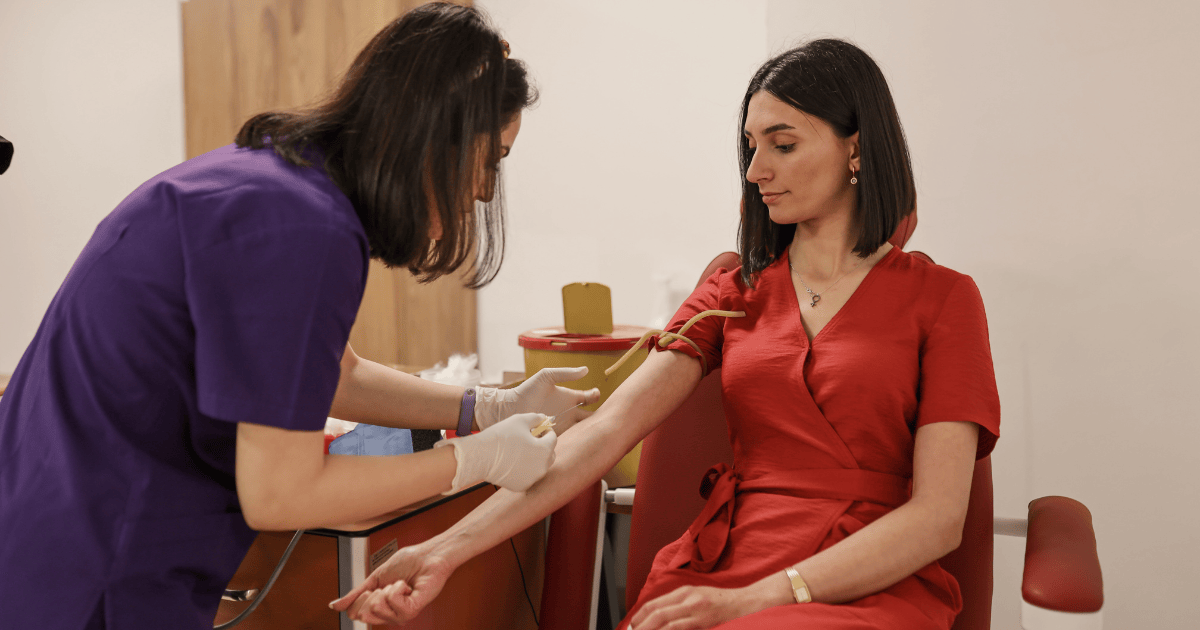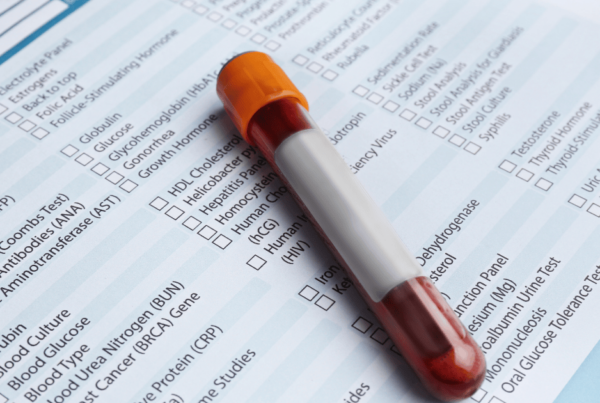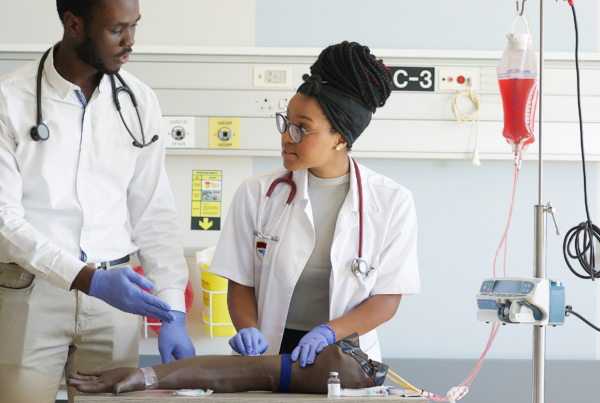Preparing for a blood test often comes with questions, especially if fasting is required. Whether you’re a patient scheduled for routine lab work or a student at Phlebotomy Now School learning the intricacies of blood collection, understanding fasting guidelines is crucial. This guide delves into every aspect of fasting before a blood test, equipping you with the knowledge to navigate this process confidently.
| Key Takeaways |
| Understand the Guidelines: Each test may have unique fasting requirements. |
| Hydrate Properly: Drink water to ensure smooth blood collection. |
| Communicate Clearly: Inform your provider of any fasting errors or health concerns. |
| Plan Ahead: Schedule tests early to simplify fasting periods. |
Fasting before a blood test is an important step in obtaining reliable health information. By following these guidelines, you empower yourself and your healthcare provider to make well-informed decisions about your care.
What Does Fasting for a Blood Test Mean?
Fasting involves refraining from eating or drinking anything except water for a specified period, usually 8-12 hours before your test. During this time, you should also avoid the following:
- Chewing Gum: Even sugar-free gum can stimulate digestion and alter test results.
- Smoking or Vaping: Nicotine can influence certain blood values.
- Physical Activity: Intense exercise may impact hormone and enzyme levels.
The primary purpose of fasting is to ensure that recent food and drink intake doesn’t interfere with the accuracy of your test results.
Why is Fasting Necessary for Blood Tests?
When you eat or drink, your body metabolizes nutrients, causing temporary changes in your blood composition. For tests that measure glucose, cholesterol, and other substances, fasting ensures a baseline measurement, unaffected by recent meals.
Fasting also allows your healthcare provider to:
- Accurately assess your metabolic health.
- Diagnose conditions like diabetes or high cholesterol.
- Monitor ongoing treatment plans effectively.
Common Blood Tests Requiring Fasting
1. Blood Glucose Test
- Purpose: Evaluates blood sugar levels, often used to diagnose diabetes.
- Fasting Period: Typically 8 hours.
- Why It Matters: Food and drinks can elevate glucose levels, leading to inaccurate results.
2. Lipid Panel (Cholesterol Test)
- Purpose: Measures cholesterol and triglycerides to assess heart health.
- Fasting Period: 9-12 hours.
- Key Insight: Even small snacks can affect triglyceride readings, making fasting crucial.
3. Basic Metabolic Panel (BMP)
- Purpose: Evaluates kidney function, electrolytes, and blood sugar.
- Fasting Period: 8-12 hours, depending on your provider’s instructions.
4. Comprehensive Metabolic Panel (CMP)
- Purpose: Includes BMP tests and assesses liver function.
- Fasting Period: 8-12 hours.
5. Iron Tests
- Purpose: Diagnoses iron deficiency anemia or overload.
- Fasting Period: 12 hours.
- Additional Note: Morning testing is often recommended, as iron levels fluctuate throughout the day.
6. Vitamin B12 Test
- Purpose: Identifies vitamin deficiencies or related conditions.
- Fasting Period: 6-8 hours.
How to Prepare for Fasting
Plan Your Schedule
Scheduling your blood test in the morning is the easiest way to handle fasting. By sleeping through most of the fasting period, you minimize hunger and discomfort.
Eat a Balanced Meal Before Fasting
Your last meal before fasting should be nutrient-rich and satisfying. Consider including:
- Lean proteins (e.g., chicken, tofu).
- Healthy fats (e.g., avocado, nuts).
- Complex carbohydrates (e.g., whole grains).
Stay Hydrated
Drinking water before and during fasting is essential. Proper hydration improves blood flow and makes it easier for the phlebotomist to locate your veins.
What to Avoid While Fasting
Caffeine
Coffee and tea, even without sugar or milk, can stimulate your digestive system and impact test results.
Alcohol
Alcohol can skew measurements, especially for liver function and triglyceride levels. Avoid drinking for at least 24 hours before the exam.
Snacks or Small Bites
Even a small piece of candy or a few crackers can interfere with the accuracy of your results.
Can You Take Medications While Fasting?
Consult your healthcare practitioner if you are taking any recommended drugs. While many medications are safe to take during fasting, others may need to be paused or adjusted to prevent interference with test outcomes.
Tips for a Successful Fasting Period
- Set Alarms or Reminders: Use phone notifications to remember when to start fasting.
- Communicate with Your Provider: Double-check fasting instructions for your specific test.
- Carry Water: Keep a bottle of plain water handy to stay hydrated.
- Stay Busy: Distract yourself with light activities like reading or puzzles.
What to Do If Your Fast Is Accidentally Broken
Mistakes happen! If you accidentally eat or drink something during your fasting period:
- Notify your healthcare provider or the phlebotomist immediately.
- Be honest about what you consumed to ensure accurate interpretation of your results.
- Reschedule the test if necessary.
What Happens After the Blood Test?
Once the blood sample is collected, fasting is no longer required. You can resume eating and drinking normally.
Post-Test Snack Ideas
- Fruits: Replenish natural sugars and hydration.
- Protein Bars: Restore energy levels quickly.
- Water or Herbal Tea: Rehydrate and refresh your body.
Mistakes to Avoid
- Skipping Water: Dehydration makes blood draws more difficult.
- Eating Out of Habit: It’s easy to forget you’re fasting; set reminders to stay on track.
- Overindulging After the Test: Gradually return to your normal eating habits.
Fasting and Phlebotomy: What Students Should Know
At Phlebotomy Now School, aspiring phlebotomists learn how to support patients during fasting tests. This includes:
- Educating patients about fasting requirements.
- Providing reassurance and answering questions.
- Drawing blood efficiently and ensuring patient comfort.
Tips for Phlebotomists
- Encourage Hydration: Remind patients to drink water before the test.
- Be Empathetic: Understand that fasting can make some patients anxious or irritable.
- Communicate Clearly: Double-check with patients about their fasting compliance.
FAQs About Fasting for Blood Tests
Can I Chew Gum While Fasting?
No. Even sugar-free gum can trigger digestion and potentially impact your test results.
Is Water Allowed?
Yes. Drinking water is encouraged during fasting to stay hydrated and support vein accessibility.
Can I Smoke During Fasting?
No. Smoking or using tobacco products can affect test accuracy.
How Long Should I Wait to Eat After the Test?
You can eat immediately after the test unless your healthcare provider advises otherwise.
What If I Feel Faint During Fasting?
If you experience dizziness or weakness, drink water and inform your healthcare provider.
Fasting for Specific Groups
For Diabetic Patients
Fasting can be challenging for individuals with diabetes. To manage safely:
- Monitor blood sugar levels closely.
- Carry glucose pills or food in case of hypoglycemia.
- Discuss fasting alternatives with your doctor.
For Pregnant Women
Fasting during pregnancy should only be done under medical supervision. Providers may adjust requirements to prioritize maternal and fetal health.
The Role of Phlebotomy Professionals in Fasting Tests
At Phlebotomy Now School, we train aspiring phlebotomists to support patients during fasting tests. Key responsibilities include:
- Ensuring patients understand fasting requirements.
- Providing guidance on hydration and comfort.
- Drawing blood samples efficiently to minimize discomfort.
Conclusion
Fasting before a blood test is an essential step to ensure accurate and reliable results. While it may feel inconvenient, this temporary adjustment plays a critical role in diagnosing and managing a wide range of health conditions. By understanding the importance of fasting, preparing properly, and following your healthcare provider’s instructions, you can make the process smoother and more effective.
For aspiring phlebotomists, mastering these guidelines is a vital part of delivering exceptional patient care. At Phlebotomy Now School, we teach not only the technical skills needed to draw blood efficiently but also the knowledge to educate patients about the importance of fasting and other pre-test preparations.
Ready to start your journey toward a successful phlebotomy career?
Join our comprehensive training programs, including flexible schedules and expert-led courses. Whether you’re looking for a 1-day certification course or a weekend class, Phlebotomy Now School has options tailored to fit your needs.
Take the first step toward your phlebotomy certification!
Contact Phlebotomy Now School to learn more about our courses, upcoming class dates, and special promotions. Together, let’s make a difference—one patient at a time!







